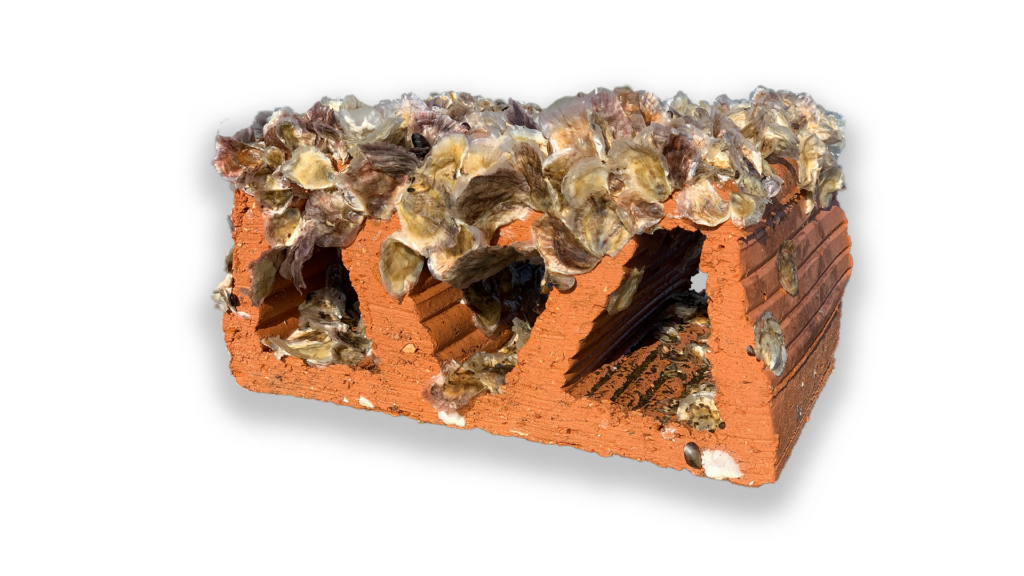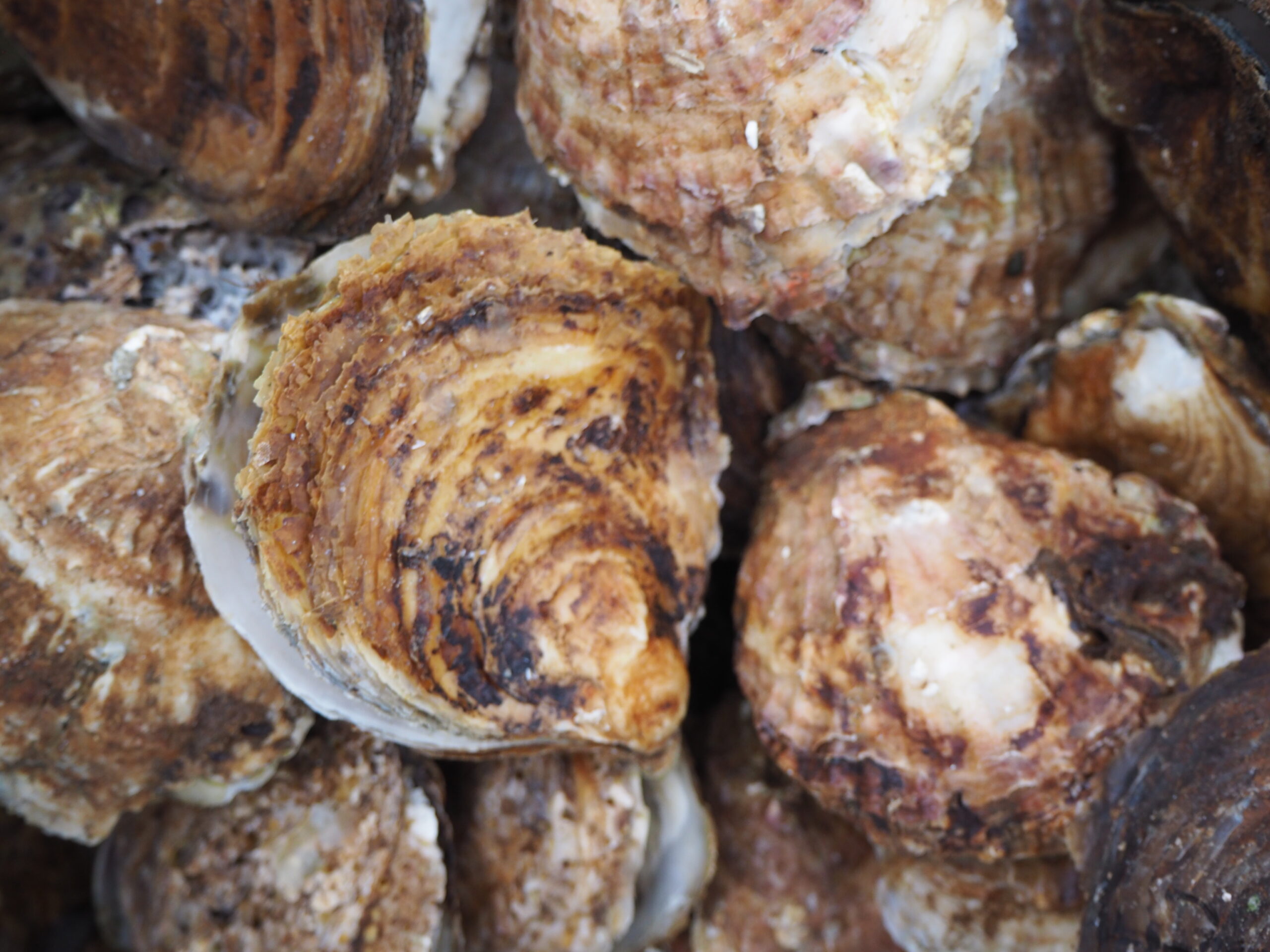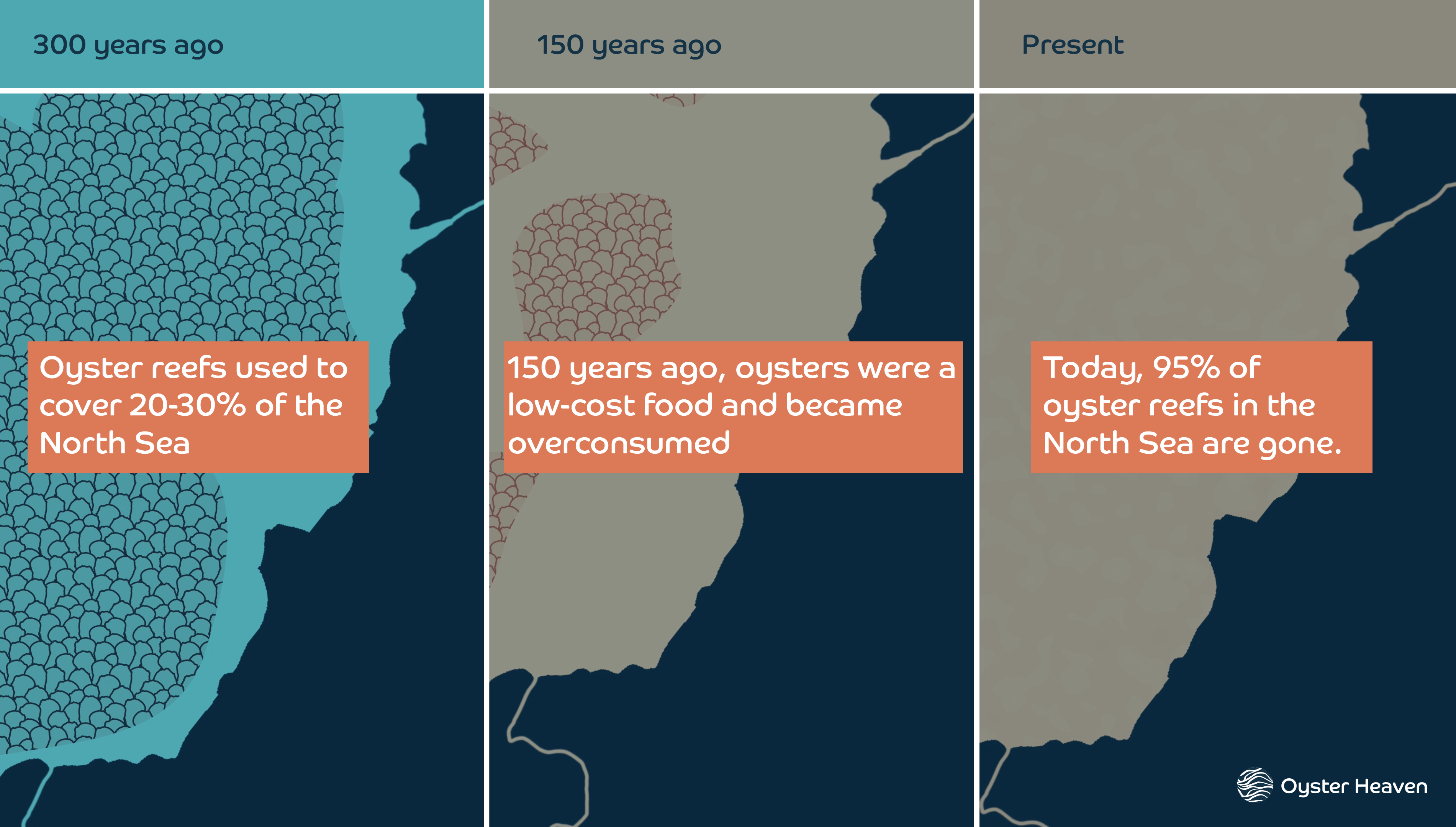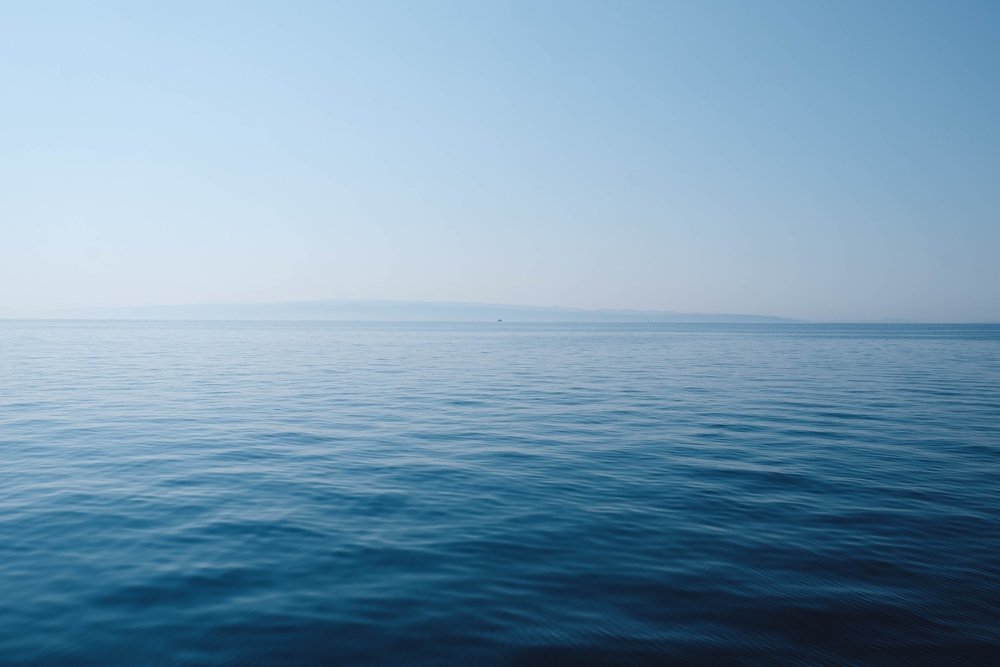
It’s evident from our name, Oyster Heaven, that oysters are our primary focus. But why? Why do we emphasize oysters over other marine creatures when it comes to restoring the balance in our oceans and cooling down the planet? Of all the endangered species in the world, why is it our mission to bring oysters back to where they used to be?

Oysters are filter feeders. They feed on the particles suspended in the sea effectively filtering up to 200 litres of water per day. This process clears the water, allowing sunlight to penetrate and support the marine ecosystem’s delicate balance. Without these natural water purifiers, excessive nutrients in the water lead to a process called eutrophication that creates algal blooms. The resulting algae would deplete the oxygen, leading to the death of fish and other marine species.
But if you know a bit about molluscs, you may know that oysters aren’t the only species filtering water. Mussels can also filter hundreds of litres of water per day. Why focus on oysters then? Because, unlike mussels, oysters have other key qualities that make them vital for the health of the ocean. Read on.
Keystone species are those organisms that help hold an ecosystem together. Oysters grow on top of one another forming large long-lasting reef structures. The reefs oysters form provide habitat for hundreds of other species that live and feed from it. Oyster reefs have a more significant impact on the environment compared to other filter feeders, making them vital to the overall health of our oceans.
Here comes the bad news.
Last but not least, the primary reason for our focus on restoring oyster reefs is their critical endangerment. Oysters are one of the most imperiled marine species in the world. Once sprawling across vast areas of our oceans, these reefs covered approximately 20-30% of the North Sea. It is said that this sea used to be clear and transparent. It was really an “oyster heaven”.
However, oysters were not always the delicacy they are today. 150 years ago they were considered just cheap food, a source of protein available for all people. Decades of over-harvesting caused severe damage to the environment. Today, only a mere 5% of these historic reefs remain in the North Sea.

The situation isn’t much better elsewhere, with just 15% of oyster reefs surviving globally.
The loss of oyster reefs means the displacement of numerous species from their habitats and the decline of significant water-purifying capabilities. As a result, our oceans are becoming increasingly murky, and algal blooms are becoming a regular occurrence.
Therefore, our mission is clear—to restore the oceans to their former state, a true Oyster Heaven.

Make a measurable difference for the ocean today.
You can now adopt a Mother Reef and help restore 100 oysters!

